Change Maker: Stronger together
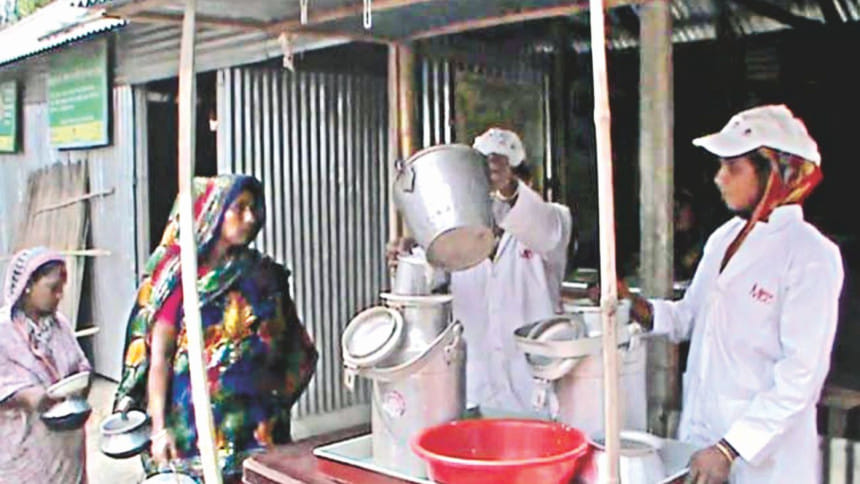
On the remote shoals in the Jamuna river in Gaibandha district, life is tough. Household dairy farms have long been pursued by village women, in the hope of achieving solvency for their families. But, burdened by distance and isolation, transporting milk to the market has never been easy. Household dairies often operated at a loss. When local NGO SKS Foundation assisted around 2,000 shoal-dwelling women in forming a dairy cooperative the situation changed. Nowadays the future looks bright.
“I used to have a single cow from which I got one and a half litres of milk daily,” says Jarina Begum from Tengakandi Char. “It was always difficult to get a fair price when selling the milk, since the nearest market is five kilometres from my home.”
Tengakandi is one of the several shoals that comprise the three unions of Fulchari, Arendabari and Fazlupur in Fulchari upazila. The communities living there are detached from the mainland year-round. During the monsoon months, country boats are the main means of transport; through the dry season going anywhere means a long, sandy journey on foot.
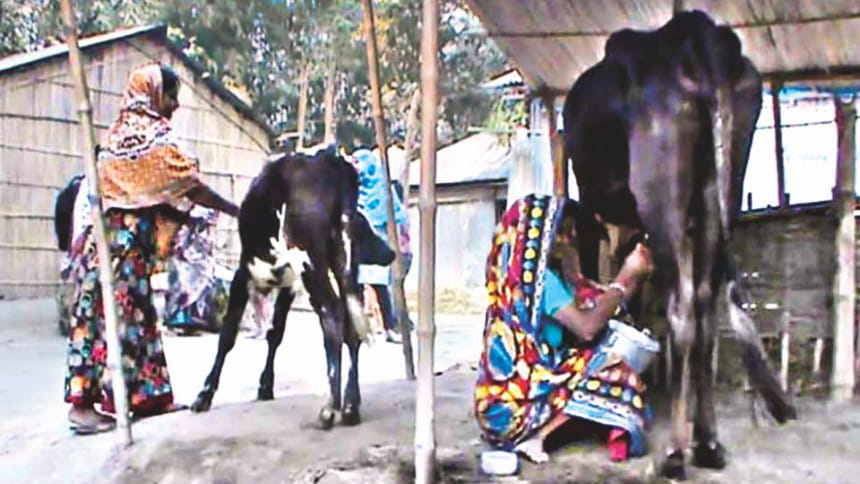
The dairy cooperative means that milk can now be sold at local collection points, at regulated fair rates. The cooperative has also been able to offer advice to increase output. For the dairy farmers involved, it's an innovation that has made a world of difference.
“Now I have two cows which produce more than four litres of milk a day,” says Jarina. “I sell to the cooperative now, for a good price.”
Neighbour Rashida Begum's fortunes have similarly improved. “My dairy was a losing concern,” she says, “but now we can sell the milk at the cooperative's procuring point for a fair rate.”
The advantage is not only the current Tk 32 per litre the cooperative offers, but that the seller is paid in cash soon after the milk is delivered, she explains.
Almost all village women in Tengrakandi rear cows for milk. The economic improvement brought about by the cooperative has raised living standards across the community. Milk is collected by cooperative members from 10am to noon each day, to be on-sold to milk traders; and milk from the shoals is popular with town residents for its superior quality. Key buyers include sweetmeat shops, bakeries and other retail food outlets that require milk.
Local milk trader Golap Paiker says he buys milk from the cooperative at Tk 35 per litre to sell on the mainland for up to Tk 45. “It used to be very difficult to buy milk on the shoals,” he recalls, “moving door to door, speaking to each producer. Now it is possible to collect milk in bulk from a stipulated location.”
SKS Foundation is also providing the women with financial help. “Our aim is to help empower shoal-dwelling women to change their fate,” says organisation coordinator Bahram Khan. “We hope they can stand on their own feet through cattle rearing.”
District livestock officer Abdul Latif says Tengrakandi's women have set an example on how to produce and effectively market fresh milk. “Their efforts have even created employment in the remote shoal lands.”

 For all latest news, follow The Daily Star's Google News channel.
For all latest news, follow The Daily Star's Google News channel. 


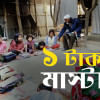
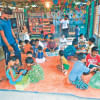

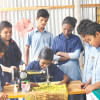


Comments